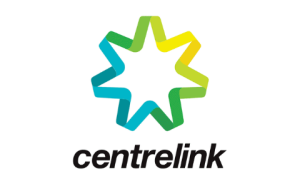Working out what to do with your family home when you’re getting ready to move into residential aged care is one of the biggest decisions you and your family can face. While some people are keen to sell their home once they no longer need it, or to sell the property to fund aged care accommodation costs, others choose to keep it and receive ongoing rental income from the property. There are pros and cons to both sides.
Paying aged care fees
When you move into residential aged care you may be required to pay an accommodation contribution or accommodation payment. These accommodation costs may be funded from the sale proceeds of the family home. If you choose to keep your family home, other funding strategies may be considered.
You will also need to pay ongoing care costs for as long as you remain in the aged are facility. This could include the basic daily fee, a means-tested care fee and any extra service or additional fees. Depending on your level of income and assets, these costs can vary.
Rental property maintenance and costs
While you’ll earn ongoing rental income from your property if you rent it out, you also need to consider the ongoing costs associated with maintaining the property, such as having funds available for repairs and tenant management. And if your property is untenanted for a while, you’ll need to rely on other assets and sources of income to pay your ongoing care costs. You may also need to spend some
money on the property before you rent it out to bring it up to a rental standard.
Tax and Centrelink implications
If you rent out your family home, you may have to pay tax on the rental income you receive. However, there are various tax offsets available – including the low income, seniors and pensioners and net medical expenses tax offset – that may reduce the amount of tax you have to pay.1 You or your family may also have to pay Capital Gains Tax on the property when it is eventually sold2.
Whether you keep or sell your family home, the decision may affect your Centrelink entitlements. The Age Pension is worked out by an income and an assets test3. Your rental income will be assessed as part of the income test, and after the first two years your property will be immediately assessed under the assets test as well3. If you sell your home you won’t have rental income or an investment property to reduce your entitlements, but the sale proceeds will come into consideration.
DISCLAIMER
The information/advice provided in this website is General Advice Only. It has been prepared without taking into account any of your individual objectives, financial situation or needs. Before acting on this advice you should consider the appropriateness of the advice, having regard to your own objectives, financial situation and needs. You should obtain a Product Disclosure Statement relating to the products mentioned, and consider the statements before making any decision about whether to acquire products.
We take your privacy seriously and as such we, or any of the Financial Services Partners financial advisers, will never ask you to transfer money via email request unless we have spoken to you in person or the transfer is part of an existing arrangement between you and your financial adviser. If you receive any such requests that are outside the agreed arrangements you have with your financial adviser, please contact our office immediately to confirm the validity the request before you take any action – .
1 www.ato.gov.au/Individuals/People-with-disability/Tax-offsets/
2 www.ato.gov.au/general/capital-gains-tax/
3 www.humanservices.gov.au/individuals/services/centrelink/age-pension/eligibility
The information contained in this guide is provided by Challenger Life Company Limited, ABN 44 072 486 938, AFSL 234670 and is current as at 21 November 2018. This information is not intended as financial product advice, legal advice, taxation advice or social security advice. It does not take into account the investment objectives, financial position or needs of any person and these matters should be considered before making any investment decision. Challenger’s obligation to make guaranteed payments under any annuity is a contractual obligation and is subject to the terms of the annuity and the Life Insurance Act (Act). The payment obligation of Challenger is limited to the available assets of Challenger’s Statutory Fund No 2, except as otherwise provided by the Act. Challenger 35208/1218 is authorised by APRA to operate a life insurance business and is regulated by APRA






